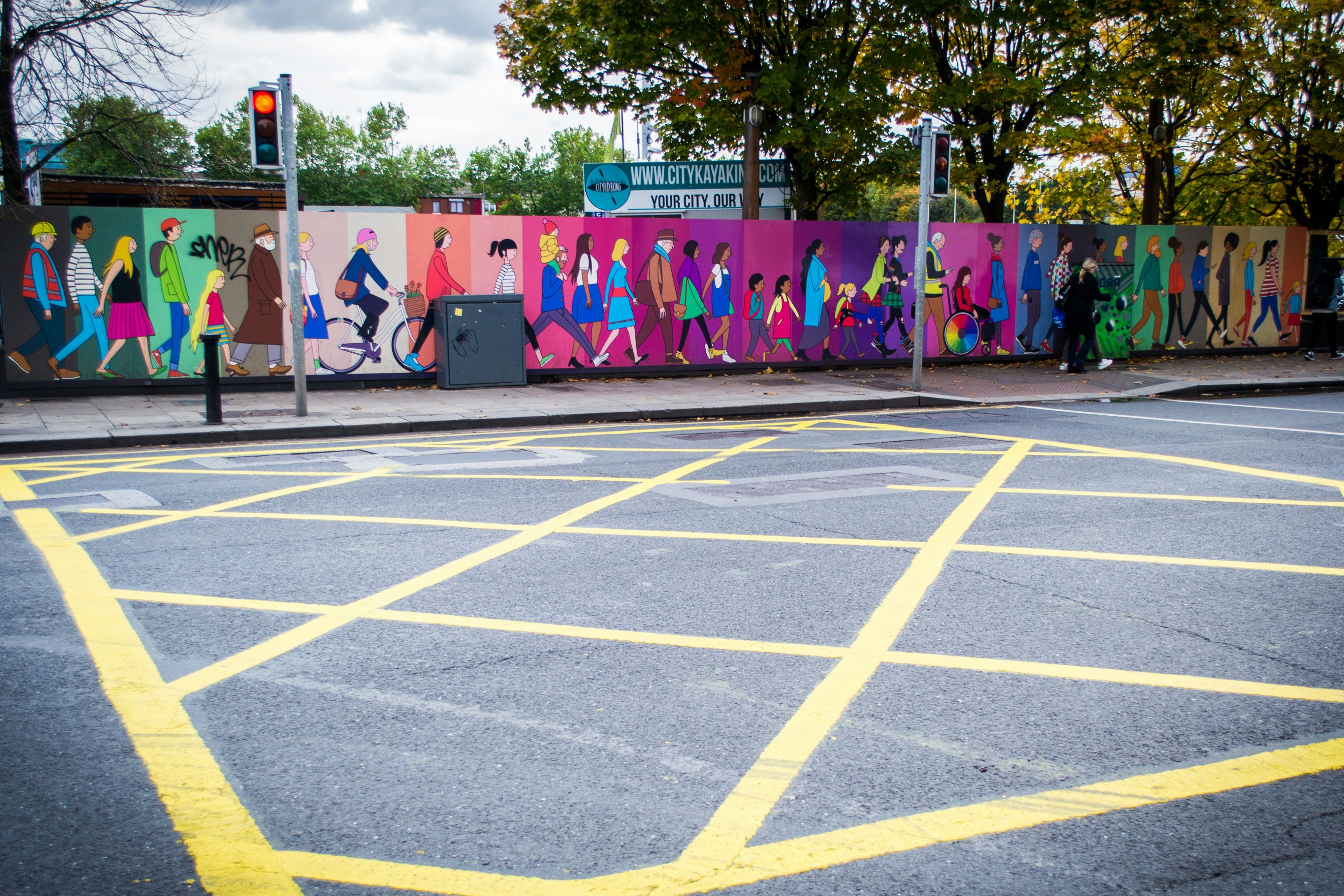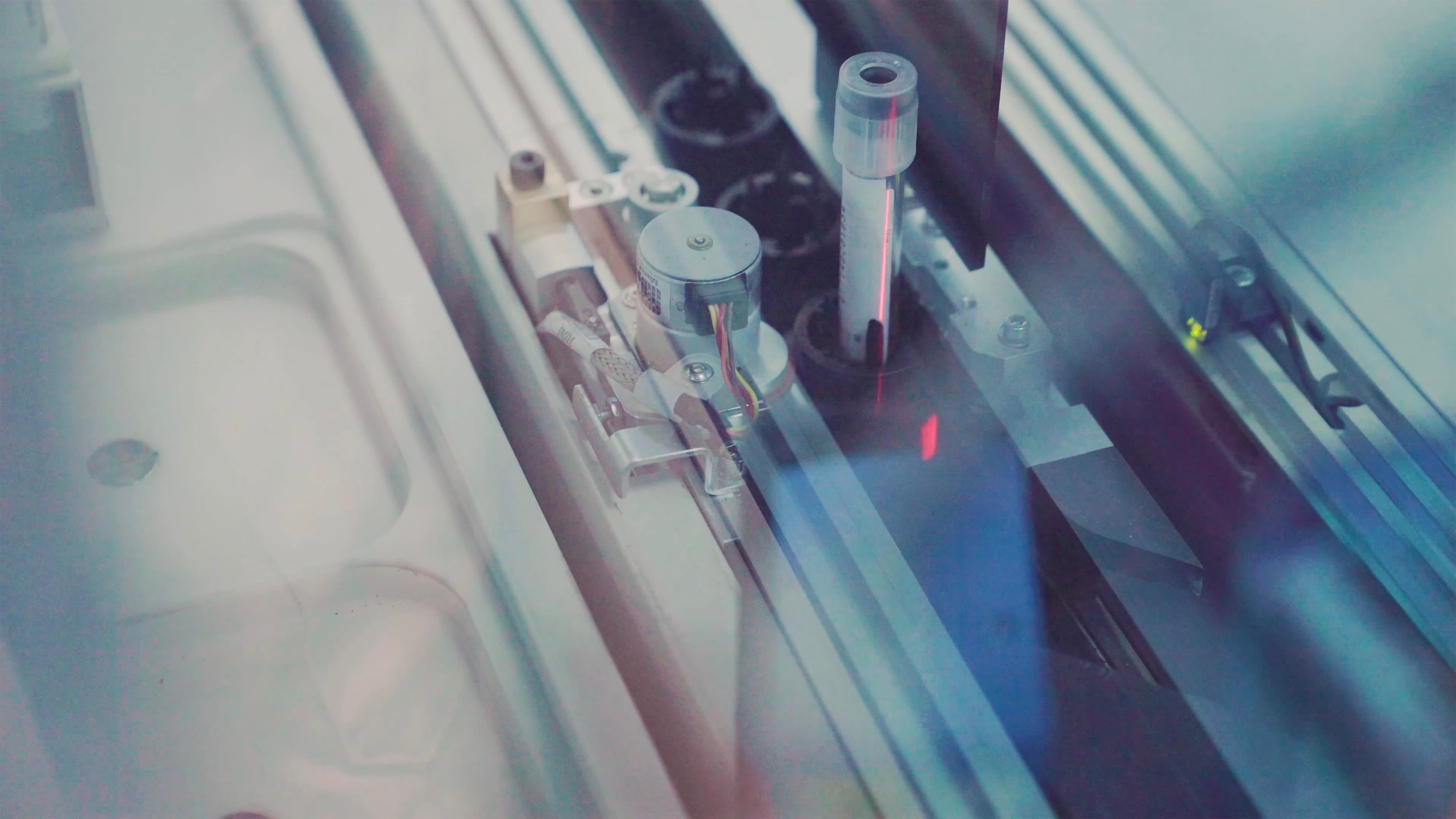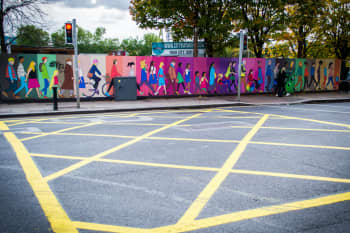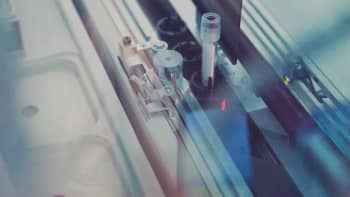Shaping Policy Through Engagement
Turning research into impact through an engaged approach

Our research community is deeply committed to driving positive change. We work closely with policymakers and government departments to help shape evidence-based policies that address complex societal challenges. Just as importantly, we actively engage with the public—sharing knowledge, fostering dialogue, and ensuring that diverse perspectives contribute to the policymaking process.
Through collaboration, communication, and community, we transform research into action that truly matters.
Below, we showcase examples of how our university’s research is informing policy across our research pillars.
Research Pillar: Creativity, culture and society
Alternative education and youth mental health projects
A team of researchers at the UNESCO Child and Family Research Centre recently completed a set of groundbreaking evaluations of 24 alternative education and youth mental health projects. This six-year project was the largest of its kind conducted in Ireland to date, and was funded by Rethink Ireland through their Education & Youth Mental Health Funds 2017-2022.
Members of the research team are currently working with policymakers and NGOs such as the Children’s Rights Alliance to inform policy and practice, including the government's National Education Convention and Out-of-School Education Provision Implementation Plan.
Researcher-policymaker interactions in Ireland
A new project, funded by Research Ireland, explores researcher-policymaker interactions in Ireland through the micro-level lens of the individual researcher.
This two-year study, carried out by an interdisciplinary team of researchers and policymakers at the Institute for Lifecourse and Society (ILAS), has a particular focus on exploring how engaged research approaches impact academic-policy engagement, across different academic disciplines and researcher and civil servant career stages.
Three work packages will guide the study and include: interviews with a diverse cross-section of researchers; a national survey of research-focused academics in all Irish HEIs; and extensive policy stakeholder consultations to refine and disseminate findings relevant to both research and policy communities.
Better outcomes for children
The Health Behaviour in School-aged Children (HBSC) survey is a WHO collaborative cross-national study that monitors the health behaviours, health outcomes and social environments of school-aged children every four years. HBSC Ireland surveys school-going children aged 9-18 years. The study is conducted by the HBSC Ireland team, based at the Health Promotion Research Centre, University of Galway.
HBSC Ireland has collaborated with many arms of government and civil society to make a difference for children. For example, a Flagship Partnership collaboration with the Department of Children, Equality, Disability, Integration and Youth was set up to enable children to design survey questions for HBSC.
Some of those questions are now included as key indicators to monitor national Government strategy, as part of the Better Outcomes, Brighter Futures policy framework. More.
Domestic violence as an economic issue
Ground-breaking research at University of Galway on domestic violence as an economic issue has had a fundamental role in shaping legislation and policy in countries around the world. University of Galway introduced its own domestic violence leave policy in 2021 with the support of Professor Nata Duvvury, and her research went on to inform national legislation in Ireland.
Professor Duvvury presented to the Joint Committee on Children, Equality, Disability, Integration and Youth debate in October 2022 as part of the scrutiny of the Organisation of Working Time (Domestic Violence Leave) Bill, which cited her research.
Subsequently, under the Work Life Balance and Miscellaneous Provisions Act 2023, anyone experiencing or at risk of domestic violence will be entitled to take leave to access supports. More.



Research Pillar: Sustainable and Resilient Environments - Earth and Ocean
Measuring Ireland’s Ocean Economy
The Marine Institute in partnership with the University of Galway’s Socio-Economic Marine Research Unit (SEMRU) releases regular updates on the performance of Ireland’s Ocean Economy. The report provides insights into Ireland’s ocean economy across three main economic indicators: turnover, gross value added (GVA) and employment, and provides an analysis of trends over the previous five years.
SEMRU's research is used extensively in policy documents from the Marine Institute, the Department of Housing, Local Government and Heritage, the EPA, etc.
Children’s Agency in Climate Change
The JPI Solstice funded Challenging the Climate Crisis: Children’s Agency to Tackle Policy Underpinned by Learning for Transformation (CCC-CATAPULT) project involves young people (15–18-year-olds) as researchers working with academics to examine young people’s experiences of and learning around the climate crisis.
The project is taking place in locations across Europe, including Bristol (United Kingdom), Galway (Ireland), Tampere (Finland), and Genova (Italy). A diverse group of young people in each location have been recruited to take an active role in both shaping the research itself and collaborating across research locations to explore the research questions.
A policy brief from the project presented key findings and recommendations based on the empirical evidence and the research conducted with young people, teachers in schools and other supporters of learning, as well as from workshops with local stakeholders and policymakers.
Results from Galway indicate that there is an opportunity in Ireland to build on initiatives such as local regional and national Youth Climate Assemblies (see for example Galway City Youth Climate Assembly) through a better understanding of the role that co-productive approaches can play to enrich our understanding of young people’s experiences and learning about the climate crisis.
Policies for clean air
The Ryan Institute’s Centre for Climate and Air Pollution studies (C-CAPS), led by Professor Jurgita Ovadnevaite, conducts world-leading real-time air pollution speciation and source attribution research to improve air quality in Ireland, Europe and beyond.
Based on advanced fingerprinting, C-CAPS has pioneered a quantitative source apportionment method that allows identification of major air pollution culprits.
C-CAPS work does not end with an advancement of science but provides real impact by influencing air policies and by facilitating competent decision-making that requires process-level understanding.
For example, C-CAPS worked closely with policymakers in Ireland (the EPA and the Department of the Environment, Climate and Communications) to inform and support recent changes (i.e. Solid Fuel Regulations 2022). C-CAPS research, thus, enables a behavioural and practice change, which then leads to an improvement in health and wellbeing, mitigation of the risks to public health, and ultimate improvement of the quality of life of Irish and global citizens.
Changing how we use energy at home
ENERGISE was a landmark research project that transformed how households across Europe use energy. The project found it is possible to reduce dependency on imported energy and diversify supply by identifying and changing embedded energy use behaviours. The project identified that changing these energy cultures is vital to the energy transition.
The project highlighted the social and cultural connections between consumption, consumer practices and local interventions while assuring energy efficiency and security. In challenging these connections, the project enabled significant changes in practices in 320 households across 8 European countries.
ENERGISE informed policy guidelines, advanced academic understanding and assured a sustained environmental impact. The project aided the implementation of the European Union’s Strategic Energy Technology plan and the progression of the European Energy Union, the Union’s strategic aim to ensure secure, sustainable, competitive and affordable energy.
The project aided the implementation of the European Union’s Strategic Energy Technology plan and the progression of the European Energy Union, the Union’s strategic aim to ensure secure, sustainable, competitive and affordable energy.



Research Pillar: Transformative data and AI
Future digital challenges across all aspects of life
ROSETTA is a five-year, high-impact innovative fellowship training programme led by the University of Galway.
Co-funded by LERO (the Research Ireland Centre for Software), the European Commission’s MSCA COFUND scheme, and the University of Galway, the programme will recruit 19 outstanding researchers, supported by interdisciplinary supervisors, to drive meaningful change as they examine the long-term implications of technology across society.
ROSETTA’s impact is rooted in its focus on temporality—how technology evolves over time and affects different stages of life.
Fellows will be trained in the latest theories and research methods and will explore the development, use, and governance of technology and critically examine future digital challenges across all aspects of life from children, people with disabilities, people in the workplace, to healthcare and social inclusion for older people.

Research Pillar: Innovation for Health
Science Advocacy
Science Advocacy Training at CÚRAM, the Research Ireland Centre for Medical Devices, aims to educate and support our research community to engage more effectively and responsibly with policymakers about the relevance and value of medical device research.
CÚRAM defines Science Advocacy as ‘Active support of science, informing policy audiences about our science and engaging with the policymaking process.’ In 2022 it published a White Paper exploring how Medtech researchers and research centres in Ireland can work to help bridge the research-policy gap.
The ‘Science Advocacy in MedTech’ White Paper, created in partnership with the UNESCO Child and Family Research Centre, included key recommendations such as the need for more training support for researchers in effectively communicating and engaging with policy audiences, raising awareness of the policymaking process in Ireland and internationally, and providing networking and knowledge exchange opportunities for researchers and policy audiences.

The examples highlighted here represent just a small selection of the many ways our research is making a meaningful impact on policy and society. Our work is constantly evolving as we respond to emerging challenges and opportunities, and we remain committed to sharing that journey with our partners, stakeholders, and the wider public.
We’ve made every effort to ensure the information in this article is accurate at the time of publishing.Cover photo courtesy of Professor Chaosheng Zhang, University of Galway. Enquiries to researchmatters@universityofgalway.ie. May 2025





